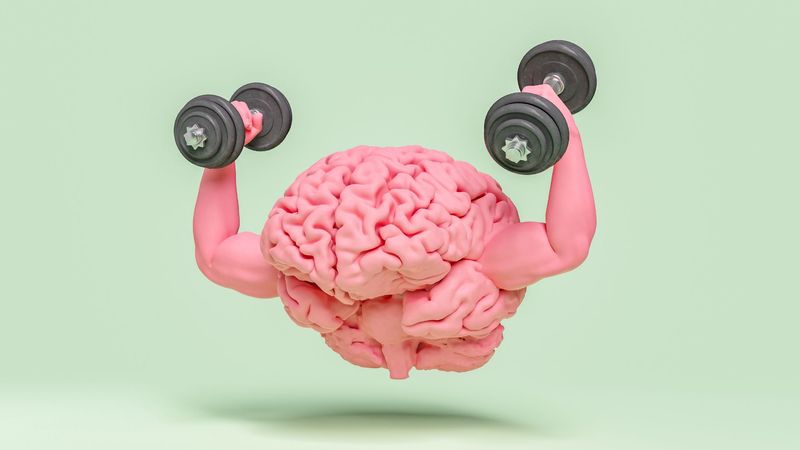15 Ways to Support Your Bones, Brain, and Heart After Menopause

Menopause brings many changes to a woman’s body, especially affecting three vital areas: bones, brain, and heart. During this time, declining estrogen levels can make these systems more vulnerable to problems like bone loss, memory issues, and heart disease. The good news is that simple lifestyle changes can make a huge difference in protecting your health. With the right approach, you can feel strong, sharp, and energetic well into your golden years.
1. Load Up on Calcium-Rich Foods

Your bones crave calcium more than ever after menopause, when estrogen levels drop and bone loss speeds up. Dairy products like milk, cheese, and yogurt pack the most calcium per serving.
Dark leafy greens such as kale and collard greens offer plant-based options that your body absorbs well. Canned fish with soft bones, like sardines and salmon, provide both calcium and heart-healthy omega-3 fats.
Aim for 1,200 milligrams daily through food sources rather than relying solely on supplements. Your bones will thank you for this nutritious foundation that keeps them strong and resilient.
2. Get Moving with Weight-Bearing Exercise

Walking, dancing, and climbing stairs force your bones to work against gravity, which signals them to stay strong. This type of exercise literally tells your bones to keep building new tissue instead of breaking down.
Start with just 20 minutes of brisk walking three times per week if you’re new to exercise. Gradually add activities like tennis, hiking, or strength training with light weights.
Your heart benefits too, as weight-bearing activities improve circulation and lower blood pressure. Even simple activities like gardening or housework count toward your daily movement goals and bone-building efforts.
3. Prioritize Quality Sleep Every Night

Sleep acts like a reset button for your brain, clearing out toxins and consolidating memories while you rest. Poor sleep after menopause can worsen brain fog and increase heart disease risk.
Create a cool, dark bedroom environment and stick to the same bedtime each night. Hot flashes often disrupt sleep, so consider moisture-wicking pajamas and a fan nearby.
Avoid screens for an hour before bed, as blue light interferes with natural sleep hormones. Seven to eight hours of quality sleep helps regulate stress hormones that affect both heart health and bone density.
4. Challenge Your Brain with New Activities

Learning new skills builds fresh neural pathways that keep your mind sharp and adaptable. Whether it’s picking up a musical instrument, learning a language, or trying puzzles, novelty stimulates brain growth.
Social activities that involve thinking, like book clubs or card games, combine mental exercise with valuable human connection. Both elements support cognitive health during hormonal changes.
Even simple changes like taking a different route to the store or brushing your teeth with your non-dominant hand can wake up sleepy brain circuits. The key is consistent mental stimulation rather than occasional intense sessions.
5. Embrace Heart-Healthy Fats

Omega-3 fatty acids from fish, walnuts, and flaxseeds act like medicine for your cardiovascular system. These healthy fats reduce inflammation that can damage arteries and contribute to heart disease.
Olive oil contains compounds that protect blood vessels and may help prevent memory decline. Use it for cooking or drizzle over salads for maximum benefit.
Avocados provide monounsaturated fats that support brain function and help your body absorb fat-soluble vitamins. Aim for two servings of fatty fish per week, plus daily portions of nuts, seeds, or olive oil for optimal heart and brain protection.
6. Manage Stress Through Relaxation Techniques

Chronic stress floods your body with cortisol, a hormone that weakens bones, impairs memory, and raises blood pressure. Finding healthy ways to unwind becomes crucial after menopause.
Deep breathing exercises activate your body’s relaxation response in just a few minutes. Try inhaling for four counts, holding for four, then exhaling for six counts.
Meditation, yoga, or even gentle stretching can lower stress hormones and improve sleep quality. Regular relaxation practice helps regulate the nervous system, supporting all three areas of health simultaneously while building resilience against daily pressures.
7. Stay Connected with Friends and Family

Strong social bonds literally strengthen your heart by reducing stress hormones and lowering blood pressure. Loneliness can be as harmful to health as smoking, especially during major life transitions.
Regular phone calls, coffee dates, or group activities provide emotional support that buffers against depression and anxiety. Laughter with friends releases endorphins that naturally boost mood and immune function.
Volunteering or joining clubs creates new connections while giving your life purpose and meaning. Social engagement keeps your brain active through conversation and shared experiences, creating a powerful foundation for long-term mental and physical health.
8. Soak Up Vitamin D Safely

Vitamin D helps your body absorb calcium and supports immune function, but many women become deficient after menopause. Just 10-15 minutes of morning sunlight can boost your levels naturally.
Fatty fish, egg yolks, and fortified foods provide dietary sources when sunshine isn’t available. Your doctor can test your blood levels to determine if you need supplements.
Strong vitamin D levels support bone density, heart health, and may even improve mood during seasonal changes. Balance sun exposure with skin protection by choosing early morning or late afternoon hours when UV rays are gentler on your skin.
9. Limit Alcohol and Quit Smoking

Alcohol interferes with your body’s ability to build new bone tissue and can worsen hot flashes that disrupt sleep. Even moderate drinking may increase breast cancer risk in postmenopausal women.
Smoking accelerates bone loss and dramatically increases heart disease risk by damaging blood vessels. Nicotine also constricts blood flow to the brain, potentially worsening memory problems.
Quitting smoking at any age provides immediate benefits, with heart disease risk dropping significantly within just one year. If you drink alcohol, limit intake to one drink per day or less to protect your bones and overall health.
10. Monitor Your Blood Pressure Regularly

Blood pressure often rises after menopause as estrogen’s protective effects decline, making regular monitoring essential for catching problems early. High blood pressure damages arteries silently, earning its nickname as the “silent killer.”
Home blood pressure monitors make tracking easy and convenient. Check your numbers at the same time each day, keeping a log to share with your healthcare provider.
Healthy lifestyle changes like reducing sodium, exercising regularly, and managing stress can often bring numbers back to normal ranges. Early detection and treatment prevent heart attacks, strokes, and other serious complications down the road.
11. Include Strength Training in Your Routine

Lifting weights or using resistance bands sends powerful signals to your bones to stay strong and dense. Muscle-strengthening activities also improve balance, reducing your risk of dangerous falls.
Start with light weights or resistance bands twice per week, focusing on major muscle groups. Even bodyweight exercises like push-ups against a wall or squats using a chair provide bone-building benefits.
Stronger muscles support better posture and reduce back pain that often develops with age. As you build strength, daily activities become easier and you maintain independence longer while protecting your skeletal system from fractures.
12. Eat Plenty of Colorful Fruits and Vegetables

Antioxidants in brightly colored produce fight inflammation that damages blood vessels and brain cells. Berries, leafy greens, and orange vegetables pack the most protective compounds per serving.
Potassium from fruits and vegetables helps regulate blood pressure naturally while supporting heart rhythm. Fiber from plant foods also helps control cholesterol levels and maintains healthy digestion.
Aim for five to nine servings daily, choosing a rainbow of colors to maximize nutrient variety. Fresh, frozen, or canned options all provide benefits, making it easy to meet your goals regardless of season or budget constraints.
13. Stay Hydrated Throughout the Day

Proper hydration supports every system in your body, from maintaining blood volume for heart health to helping your brain function optimally. Dehydration can worsen hot flashes and contribute to fatigue.
Water helps transport nutrients to your bones and removes waste products that could cause inflammation. Even mild dehydration can affect concentration and mood, making daily tasks more difficult.
Aim for eight glasses of water daily, adjusting for activity level and climate. Herbal teas, broth, and water-rich foods like cucumbers and watermelon all contribute to your fluid intake while providing additional nutrients for overall health.
14. Consider Hormone Replacement Therapy

Hormone replacement therapy can help protect bones, brain, and heart when started within 10 years of menopause. Estrogen therapy may reduce hot flashes while maintaining bone density and supporting cognitive function.
Work closely with your healthcare provider to weigh benefits against potential risks based on your individual health history. Different delivery methods like patches, gels, or pills offer various advantages.
Regular monitoring ensures the lowest effective dose for your symptoms while minimizing side effects. Some women find bioidentical hormones helpful, though more research is needed to confirm long-term safety compared to traditional hormone therapy options.
15. Schedule Regular Health Screenings

Preventive care becomes even more important after menopause, when disease risks increase significantly. Bone density scans can detect osteoporosis before fractures occur, allowing for early treatment.
Regular mammograms, colonoscopies, and heart health assessments catch problems when they’re most treatable. Blood tests can reveal vitamin deficiencies or hormone imbalances affecting your well-being.
Keep a health calendar with screening dates and results to track changes over time. Partner with healthcare providers who understand menopause and take your concerns seriously, advocating for the comprehensive care you deserve during this important life stage.

Comments
Loading…